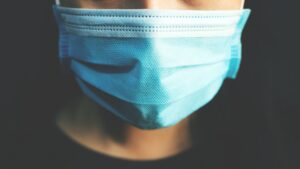“Baby Faces”

“Across virtually every key measure of childhood, progress has gone backward” (https://www.unicef.org/press-releases/across-virtually-every-key-measure-childhood-progress-has-gone-backward-unicef-says)
Just how damaging is this? From a socialization perspective, a new reality has emerged: play deprivation. Psychiatrist Stuart Brown cautions that this is “catastrophic… particularly during the first 10 years of life, is linked to major emotional dysregulation — increased prevalence of depression, a tendency to become inflexible in thought, diminished impulse control, less self-regulation, poor management of aggression, and fragility and shallowness of enduring interpersonal relationships” ( https://www.washingtonpost.com/education/2021/03/17/play-deprivation-during-pandemic-is-big-problem-for-kids/)
It sounds like the human race is breeding future criminals. Disturbing. Damning.
It all starts at home with Bowlby’s Attachment Theory. This theory stresses on poor mother-infant attachment and warns that it could be the root of many problems encountered down the line (Green, J et al. The implications of face masks for babies and families during the COVID-19 pandemic: A discussion paper. Journal of Neonatal Nursing, Volume 27, Issue 1, 2021, Pages 21-25, https://doi.org/10.1016/j.jnn.
In a COVID-19 pandemic context, what if we were to consider the converse of this theory? With stay-at-home orders and lockdown worldwide, it is possible in many cases that an infant could get overly attached to their mother. This could foster suspicion and an unwillingness to explore interactions with other people. More babies wailing at the sight of unmasked people; this is how their future is shaping up.
What are the current recommendations? For starters, a clear face mask (https://abcnews.go.com/WNT/video/innovative-clear-mask-baby-parents-faces-72153749), though expensive, is worth it. This eliminates the barrier between mother/father and child. Playing peek-a-boo while smiling teaches the baby that the caregiver’s emotions have not changed just because they are wearing a face mask. Play dates should be minimized and organized only within a couple of families within one’s bubble (https://www.health.harvard.edu/diseases-and-conditions/coronavirus-outbreak-and-kids).
With the advent of vaccine rollouts and grandparents being able to hug their grandchildren once again (https://abcnews.go.com/WNT/video/grandparents-reunited-loved-vaccine-76375384), it is only a matter of time when a baby’s bubble can slowly grow bigger to include more new faces, more interactions and more experiences. The next time you see a baby while you are out for a walk, smile at him or her. Just make sure that you are more than 2 metres away from their stroller.


